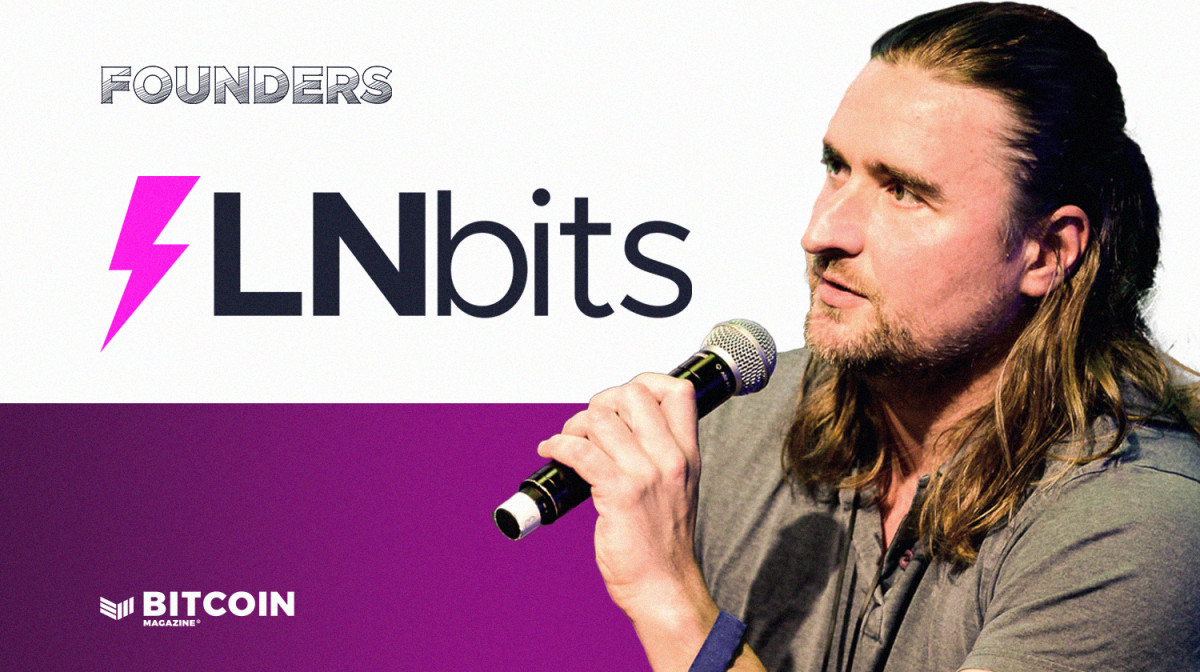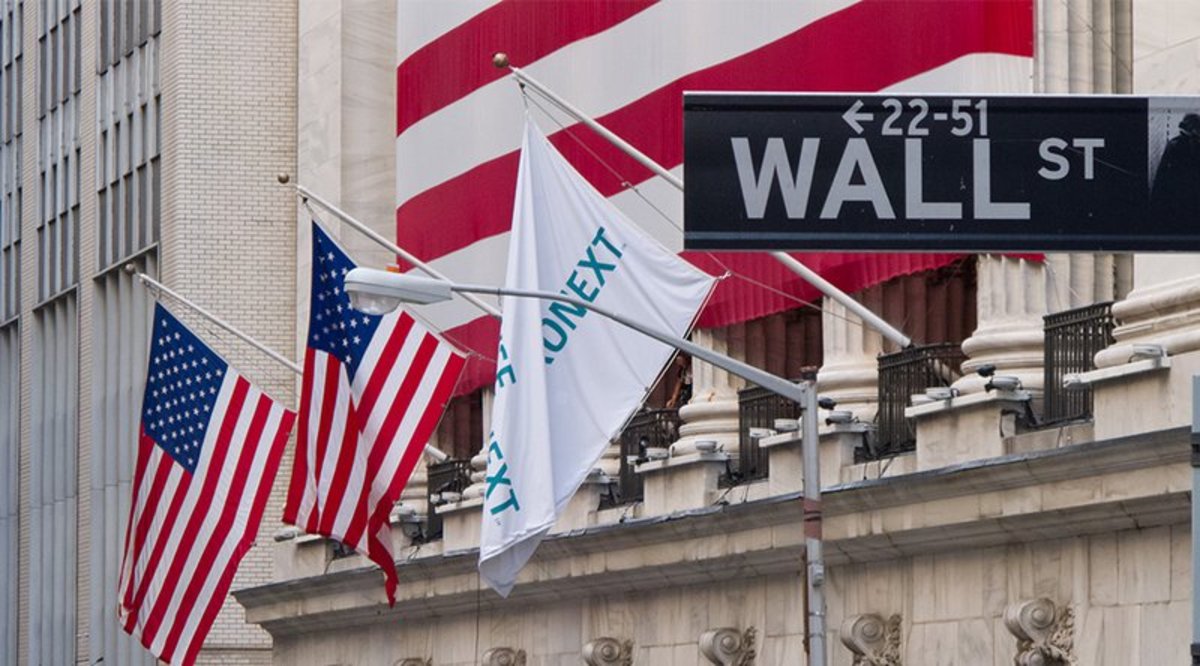Month: September 2024
Volatility in EUR/GBP currency pair to remain supressed – UBS
Post Content
China stimulus adds to reasons to stay long AUD – UBS
Post Content
Brink Donates Over $1 Million To Bitcoin Developers Last Year
Brink, a non-profit focused on funding open source Bitcoin development published its annual report detailing over $1 million in donations to Bitcoin developers in 2023. It was founded in 2020 by renowned Bitcoin developers John Newbery and Mike Schmidt, aims to provide financial support and mentorship to promising developers working on open-source Bitcoin development.
In the report published on its 4th anniversary, Brink disclosed it received approximately $2.4 million in donations last year from over 500 contributors, with Jack Dorsey’s StartSmall initiative as a major donor.
Brink’s expenses totalled around $1.6 million in 2023. Over $1.2 million went directly to developer salaries and grants, enabling them to focus on Bitcoin protocol improvements.
As Bitcoin’s code is maintained voluntarily by open-source developers, organizations like Brink help ensure adequate funding for critical work on the protocol. Proponents believe having more full-time developers improving Bitcoin results in a stronger network.
The report highlighted major achievements from Brink-sponsored developers in areas like code review, security enhancements, testing infrastructure, and upgrade research.
The annual report provided transparency into how Brink is directing funding to support Bitcoin’s developer community. Its disclosure of expenses and engineering progress helps validate the non-profit’s role in sustaining Bitcoin as a decentralized open source project.
Dollar continues to fall; euro near multi-month high
Post Content
Asia FX ticks higher, yuan hits 16-mth high on China stimulus cheer
Post Content
China’s yuan surges to 16-month peak on new stimulus measures
Post Content
Building LNbits — the WordPress for Your Bitcoin Lightning Node — With Ben Arc
Company Name: LNbits
Founders: Ben Arc
Date Founded: Project: 2019 | Company: 2022
Location of Headquarters: Fully remote (most developers based in Europe)
Amount of Bitcoin Held in Treasury: N/A
Number of Employees: 6 (+ “a couple dozen other developers”)
Website: https://lnbits.com/
Public or Private? Private
Five years ago, Ben Arc first had the vision for LNbits — free and open-source software that works with any Lightning Network funding source and offers a suite of extensions for both personal and business use cases.
The vision for the project came to him in what he describes as a flash of inspiration.
“Christian Russo, the developer of the RaspiBlitz, had come down to visit and I remember sitting in a little wash cottage where he was staying, and I just sat on the sofa and I kept going, ‘LNbits, LNbits, LNbits,’” Arc told Bitcoin Magazine. “And then I was like, ‘I think I’m going to make this project where it can be set on top of any funding source and you’ll get this common API and then have some wallets and stuff.’”
Soon after, Arc, a Bitcoiner based in Wales, began working on the first LNbits project, a point of sale (PoS) extension for his friend Jörg Platzer, owner of the now defunct Berlin-based Bitcoin bar Room 77.
“We managed to get the PoS in the bar, and Jörg was amazed how well it worked,” recounted Arc.
“What he really wanted was like an accountancy layer from which you could export CSV and then import it into different wallets, so you could have different PoSs and they’d have different wallets. None of that stuff was possible in the node implementations at the time,” he added.
“So, we needed to build that for Jörg, and then I needed to build something so I didn’t have to keep replicating work when it came to creating different versions of projects.”
That something was LNbits.
The LNbits Developer Team Forms
In the years that followed, some of the brightest developers in the Bitcoin and Lightning space gravitated to LNbits, making contributions that would help put the project on the map.
These developers included Calle, creator of Cashu; fiatjaf, creator of Nostr; Pavol Rusnak, co-founder of Satoshi Labs and a host of other notable names and pseudonyms including but not limited to dni, Eneko, Vlad Stan, supertestnet and Black Coffee. (Arc also shared that the initial design for Nostr “partly came out of LNbits” and that Cashu “was an LNbits project for such a long time.”)
This makes the LNbits developer team the Wu-Tang Clan of Bitcoin and Lightning developers — an über-talented supergroup whose members do groundbreaking work both together and on their own.
And if the LNbits developer team is Wu-Tang, then Arc is the RZA, the head of the group who organizes things and helps set up business deals. That said, the LNbits team came together less because of a master plan by Arc and more out of practicality.
“LNbits came out of necessity because a lot of us were replicating work,” said Arc.
“A lot of us were having to make all these different versions of our projects for all these different node implementations,” he added, making the point that the primary motivation behind LNbits was to reduce redundancy.
The team really came together when Arc learned that major entities in the space were beginning to use the software. At an Adopting Bitcoin conference in El Salvador, Arc bumped into some of the members of the team from IBEX, who mentioned that they were using LNbits.
“They said, ‘We love our LNbits. We’re using it for our products in our bank,’” recalled Arc.
“And I was like, ‘Well, it was really buggy beta software. Please don’t use it in your bank,” he added with a laugh.
“At that point, everyone who was working on LNBits was like, ‘Okay, wow, people are using this thing. I think we now need to make a more stable version that people can use and access, particularly if they’re putting it in their software stacks.’”
Setting Up LNbits, The Company
Arc’s interaction with the IBEX team made him realize that the time had come to turn LNbits into a proper business.
“We had to set up a company, which could then pay developers to work on LNbits,” said Arc.
Arc paralleled the relationship between LNbits the open-source software and LNbits the company to WordPress.org and WordPress.com. WordPress.org is the company that manages and develops WordPress.com, which is open-source software.
LNbits and WordPress are also similar in that anyone can develop extensions that give WordPress-powered websites extra functionality just as anyone can develop extensions for LNbits.
While it’s easy to incentivize development in LNbits’ extension marketplace by allowing developers to charge for the extension they create, getting developers to work on the software itself is more difficult. Hence, Arc set up the company.
“By setting up the company, we have some funds to put into the development work, which isn’t so glamorous, isn’t so fun,” said Arc of how LNbits approaches its software development.
“You’re less likely to kind of get people doing that on a free and open source project.”
Funding LNbits
Arc initially had some trepidation about telling the LNbits developer team that he was going to be setting up the business, though he was pleasantly surprised by their reaction when he shared the news.
“I was very nervous with our free and open source community to break the news to them that we were going to set up a business to help fund development and stuff,” said Arc. “But when we told them, they were all super excited about it.”
LNbits has since raised approximately $1 million in investment from VCs, an amount and an arrangement with which Arc is comfortable.
“I really like private capital when it’s beholden to a free and open source project,” said Arc.
He went on to describe how LNbits would have had to have raised between $10 and $20 million if it had built LNbits as a proprietary piece of software. Building it organically has been far cheaper, and building with the Bitcoin community in mind all along has had benefits, as well.
“To have this piece of software and then also have this community, which you’re kind of beholden to, stops you from making bad decisions,” explained Arc.
Coming Out Of Beta
While LNbits has become more widely used over the last five years, it’s remained in beta all the while. Arc has been in no rush to officially release a product that he didn’t feel was stable enough.
“In Bitcoin, a lot of projects come out of beta too early,” explained Arc.
“It’s just kind of a sad and scary reality that they want people to trust the software which they’ve developed, but we didn’t want to do that. We really wanted to be very conservative,” he added.
In preparation to release version one, LNbits has incorporated some funding and swapping services.
“In the last release, we added PhoenixD as a funding source for LNbits,” began Arc, describing the server equivalent of the Phoenix Wallet for mobile.
“We added the Breez SDK. We’re using the Boltz swapping service for trustless Atomic Swaps in and out of Liquid. So, it means you can actually fund your LNbits with a Liquid Wallet, which absolutely blows my brain,” he added.
The Future of LNbits
Right now, Arc seems to simply be focused on getting version one live and then continuing to fine tune it so that people and businesses can rely on it in a professional capacity. Arc wants to be sure the team is focused so that it can “debug on the fly” if and when necessary.
Arc and the LNbits team also want to create more educational content around showing people how to use LNbits as well as how to create their own LNbits extensions.
“That was a success of the project early on,” said Arc. “We just did a lot of educational content and everyone was like, ‘Okay, cool, I can try and build something on this thing.”
While Arc also seems excited about how LNbits can further integrate with Nostr (he’s been toying around with running the Internet of Things (IoT) over Nostr), the most exciting part about the future for LNbits is its limitlessness.
Put another way, in just five years, it has attracted brilliant developers who’ve created the earliest iterations of their revolutionary technologies (e.g., Cashu, Nostr) via LNbits, and this isn’t to mention all of the innovative LNbits extensions developers have created.
The question now is who develops via LNbits in the next five years and what do they create?
While Arc doesn’t claim to know, he is surely excited about what comes next, especially in the wake of version one going live.
“Once we’re version one, that’s when the real fun begins,” said Arc.
“We’re starting to see glimpses of it, because we can just build fun extensions for functionality and build out product services,” he added.
“That really is when the fun begins for the project.”
Bitwise CIO Says ‘Most Powerful People in Finance’ Are Buying Bitcoin And Crypto
Matt Hougan, chief investment officer of Bitcoin and crypto asset manager Bitwise Investments, claims the “most powerful people in finance” are allocating to Bitcoin and crypto.
In a memo, Hougan described a telling moment at a recent financial advisor summit hosted by Barron’s magazine. When asked, nearly every attendee said they owned Bitcoin and crypto assets personally.
Bitwise is a major Bitcoin and crypto index fund provider managing over $4.5 billion in assets. Earlier this year, the company secured regulatory approval for the first Bitcoin exchange-traded fund (ETF) in the U.S.
Hougan said when he asked the same question at past advisor summits, only 10-20% would raise their hands. Approximately 70% said they owned Bitcoin and crypto this year, representing a sea change.
While fewer said they had allocated Bitcoin and crypto in client accounts yet, Hougan expects that to follow within 6-12 months based on past trends. He called it “one of the most powerful signs of the times” that top financial advisors are buying Bitcoin and crypto themselves.
Hougan believes the launch of Bitcoin ETFs this year, which opened Bitcoin access to more investors, sparked the shift. But he says when advisors buy Bitcoin personally, it breeds familiarity and opens the path to later client allocations.
The anecdote reveals surging Bitcoin ownership among influential finance professionals firsthand. As these elite advisors and money managers embrace Bitcoin, it validates and likely foreshadows a larger wave of institutional adoption.
Citi doubles down on bearish EUR/USD stance
Post Content
Dollar stabilizes, euro rebounds after selloff
Post Content







